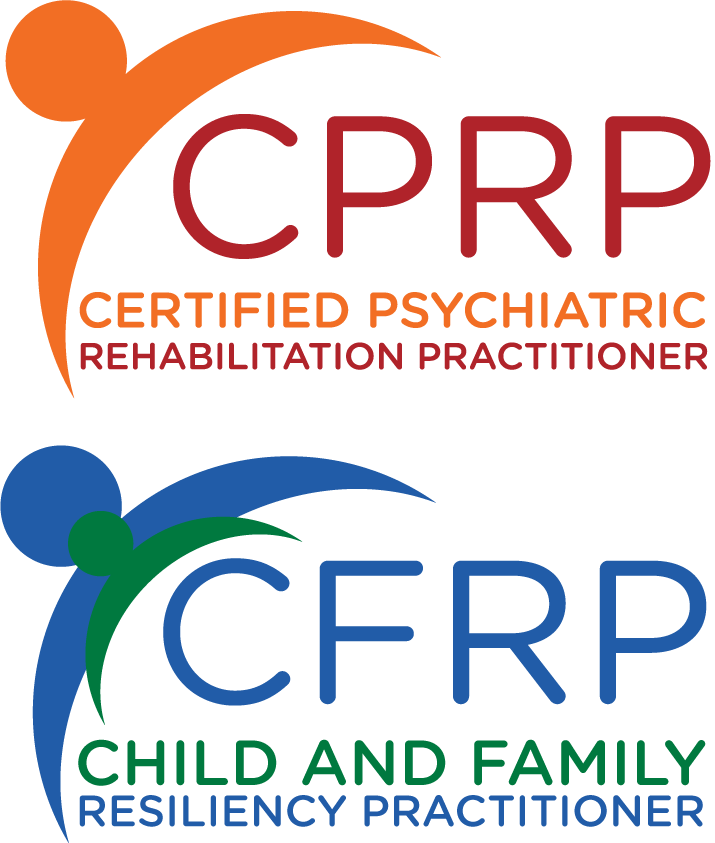You are here
 The mission of the Certification Commission for Psychiatric Rehabilitation and Recovery (the “Commission”) is to foster the growth of a competent and ethical psychiatric rehabilitation workforce through the development and administration of a test-based PRA Certification Program qualifying individuals as a Certified Psychiatric Rehabilitation Practitioner (CPRP) and/or a Certified Child and Family Resiliency Practitioner (CFRP), and the enforcement of adherence to the PRA Code of Ethics (the “Code”) by each individual certified with a PRA Credential (a “Practitioner”). The Code binds Practitioners and all applicants to the PRA Certification Program. An Ethics Review Panel reviews all reported violations of the Code and determines appropriate action based on their findings. An Appeal Review Panel reviews all appeals of adverse action submitted to the Commission.
The mission of the Certification Commission for Psychiatric Rehabilitation and Recovery (the “Commission”) is to foster the growth of a competent and ethical psychiatric rehabilitation workforce through the development and administration of a test-based PRA Certification Program qualifying individuals as a Certified Psychiatric Rehabilitation Practitioner (CPRP) and/or a Certified Child and Family Resiliency Practitioner (CFRP), and the enforcement of adherence to the PRA Code of Ethics (the “Code”) by each individual certified with a PRA Credential (a “Practitioner”). The Code binds Practitioners and all applicants to the PRA Certification Program. An Ethics Review Panel reviews all reported violations of the Code and determines appropriate action based on their findings. An Appeal Review Panel reviews all appeals of adverse action submitted to the Commission.
Practitioners who participate in the PRA Certification Program (the "Certification Program") are required to sign and agree to uphold the Code. A Practitioner’s signature on the Code creates the presumption that the Practitioner has read the Code, and understands its principles and the consequences of violating the Code. Such agreement is made at the time of application to the Certification Program, as well as during each recertification of their PRA Credential(s).
RESOLUTION OF ETHICAL ISSUES
Violation of the Code
A Practitioner found to have violated the Code is subject to temporary suspension and/or permanent revocation of their PRA credential(s). An applicant for a certification examination found to have violated the Code is subject to temporary suspension and/or permanent revocation of their eligibility to sit for an examination. Such suspension and/or revocation may or may not bar subsequent NEW applications to the Certification Program, and may carry reasonable terms and conditions as deemed fit by the Commission.
The Ethics Review Panel of the Certification Commission
An Ethics Review Panel, consisting of members of the Commission and/or PRA and PRF Boards (3-5 total), will be appointed by the Chair of the Commission.
Filing an Ethical Grievance
Grievances may be filed by individuals receiving services from the Accused, the colleagues of the Accused, or other interested parties. PRA Staff will review any incoming correspondence suggesting possible Code violations, supply information about the Code and grievance process, and communicate any submitted grievances to the Ethics Review Panel.
The Complainant must specify in their grievance exactly which Fundamental Principle, Fundamental Standard, and/or Guideline for the Principles and Standards within the Code is being violated, and a detailed explanation of the violation. When a grievance is made, the Accused will be immediately notified and asked to respond to the grievance in writing. The Accused will have 30 days to prepare a response and submit it to the Ethics Review Panel for consideration.
Certification Program Staff will provide copies of the grievance and response to all members of the Ethics Review Panel. Members of The Ethics Review Panel will have 30 days to review the complaint, and to request additional information from either party. The Ethics Review Panel will then meet, virtually or in-person, to discuss their findings, and vote on a decided course of action. Possible findings and related courses of actions are:
A. The complaint is not valued and is dismissed.
1. All involved parties will be informed of the decision in writing.
B. The complaint is judged valied and:
1. the Accused will be informed in writing to cease unethical activity;
2. the Complainant will be notified in writing of the Panel's findings;
3. the Accused will either:
i. be suspended from the Certification Program for a specified amount of time (1 to 3 years);
ii. have their PRA credential(s) temporarily revoked for a specified amount of time (1 to 3 years);
iii. have their PRA credential(s) permanently revoked;
4. the suspension and/or revocation will be publicized online at www.psychrehabassociation.org.
Policy for Appeal of an Adverse Finding by the Ethics Review Panel
Adverse findings and related courses of action by the Ethics Review Panel may be appealed to the Commission. The Commission provides due process to those individuals affected by adverse decisions of the Ethics Review Panel. Appeal of adverse findings and/or related courses of action will be heard by an ad-hoc Appeal Review Panel of the Commission. An Accused Practitioner shall retain their PRA credential(s) during the appeal process, but must meet all requirements for recertification of the credential(s) as they come due in order to preserve their standing for appeal.
Actions that may be appealed include:
- An action of “Not Approved” on an application to sit for a certification examination where there has been a finding of:
A. Denial or Revocation of a professional license, sanction or revocation by a licensing body, or pending complaints against the applicant regarding their work;
B. Current activity that may be considered a felony, and/or current probation or parole for such activity;
C. Failure to sign the PRA Practitioner Code of Ethics;
D. Inaccurate and/or misleading information on the application.
- An action of “Not Approved” on an application for recertification of a PRA credential(s) where there has been a finding of:
A. Inaccurate and/or misleading information on the application;
B. Suspension or revocation of the credential(s) by the Ethics Review Panel;
C. Failure to sign the PRA Practitioner Code of Ethics.
The following may NOT be appealed:
- An action of “Not Approved” to sit for a certification examination due to failure to meet eligibility requirements, including payment of fees.
- Failure to achieve a passing score on a certification examination.
- Lapse of eligibility to take a certification examination due to failure to pass the examination within the allowed eligibility time period.
- Suspension or revocation of a PRA credential(s) due to failure to meet requirements for recertification, including payment of fees.
Filing an Appeal
The Appellant must initiate the appeals process by submitting a letter of appeal. The letter must be received by Certification Department Staff within 30 days after receipt of the notice to the Appellant of the action taken being appealed. The letter of appeal should include the relevant facts of the matter, the action taken, the resolution requested, and any new information the Appellant would like the Appeal Review Panel to consider. The Appellant will be notified of the Appeal Review Panel’s decision in writing within 90 days of the date the letter of appeal was received by Certification Department Staff.
The Appeal Review Panel
An Appeal Review Panel, consisting of members of the Commission and/or PRA and PRF Boards (3-5 total), will be appointed by the Chair of the Commission. These are to be different members than those on the Ethics Review Panel.
After hearing all relevant facts and arguments, the Appeal Review Panel may find:
- the action was legitimate and stands;
- the action was legitimate, but the terms of the non-approval, suspension and/or revocation will be adjusted; or
- the action is not legitimate and the requested relief will be granted.
NOTE: A finding of a violation of the Code may be made only by the duly appointed Ethics Review Panel of the Commission, in response to a written complaint that has been signed by the Complainant. Complaints may be made by people receiving services from the Accused; by colleagues of the Accused, or by other interested parties. The Accused may appeal actions taken by the Ethics Review Panel pursuant to the Policy for Appeal of an Adverse Finding by the Ethics Review Panel listed above.



